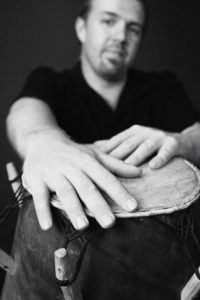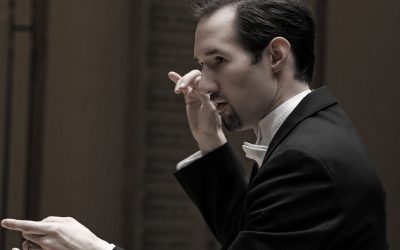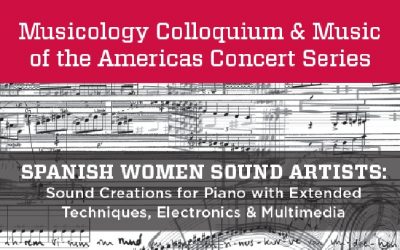Dr. Michael Vercelli
Clinic/master class on West African Gyil Performance
Tuesday, October 25, 2016
2:00 – 3:00
Room B120
 Dr. Michael B. Vercelli is the director of the World Music Performance Center at West Virginia University. Michael holds a Doctor of Musical Arts degree in Percussion Performance with a minor in Ethnomusicology from the University of Arizona. While well versed in the classical percussion repertoire, Michael’s specialty lies in non-Western instruments. He has studied the traditional music of other countries and done fieldwork in Bali, Cuba, Brazil, and primarily, Ghana. Dr. Vercelli has received many awards for both his performance and study of indigenous music such including a WVU Faculty Senate Research Grant for his project – “Remembering the Hunters: Preservation through Performance of the Ritual Birifor Funeral Music of Ghana.” At WVU, Dr. Vercelli also directs summer study abroad courses to Ghana and Brazil, focusing on music, dance and cultural emersion. Dr. Vercelli is a contributing author to the World Percussion chapter in the third edition of Gary Cook’s Teaching Percussion. He is a participating member in the Society for Ethnomusicology and Percussive Arts Society where he serves on the World Percussion Committee. Michael has given lectures, performances and workshops, across the United States, Mexico, Brazil, China and Iceland, and is a founding member of the Zumbumba Percussion Trio.
Dr. Michael B. Vercelli is the director of the World Music Performance Center at West Virginia University. Michael holds a Doctor of Musical Arts degree in Percussion Performance with a minor in Ethnomusicology from the University of Arizona. While well versed in the classical percussion repertoire, Michael’s specialty lies in non-Western instruments. He has studied the traditional music of other countries and done fieldwork in Bali, Cuba, Brazil, and primarily, Ghana. Dr. Vercelli has received many awards for both his performance and study of indigenous music such including a WVU Faculty Senate Research Grant for his project – “Remembering the Hunters: Preservation through Performance of the Ritual Birifor Funeral Music of Ghana.” At WVU, Dr. Vercelli also directs summer study abroad courses to Ghana and Brazil, focusing on music, dance and cultural emersion. Dr. Vercelli is a contributing author to the World Percussion chapter in the third edition of Gary Cook’s Teaching Percussion. He is a participating member in the Society for Ethnomusicology and Percussive Arts Society where he serves on the World Percussion Committee. Michael has given lectures, performances and workshops, across the United States, Mexico, Brazil, China and Iceland, and is a founding member of the Zumbumba Percussion Trio.
2018-19 New Mexico Winds and Brass All State Etudes
Featuring the UNM Winds and Brass faculty
UNM Department of Music Hires New Director of Choral Studies
The College of Fine Arts and Department of Music are excited to announce that Dr. David Edmonds will be joining our faculty this fall as the new Director of Choral Studies.
Spanish Women Sound Artists: Sound creations for piano with extended techniques, electronics & multimedia
In the contemporary music scene of Spain female composers are shaping the experimental horizon of the country with sound creations and experimentations with traditional instruments.



